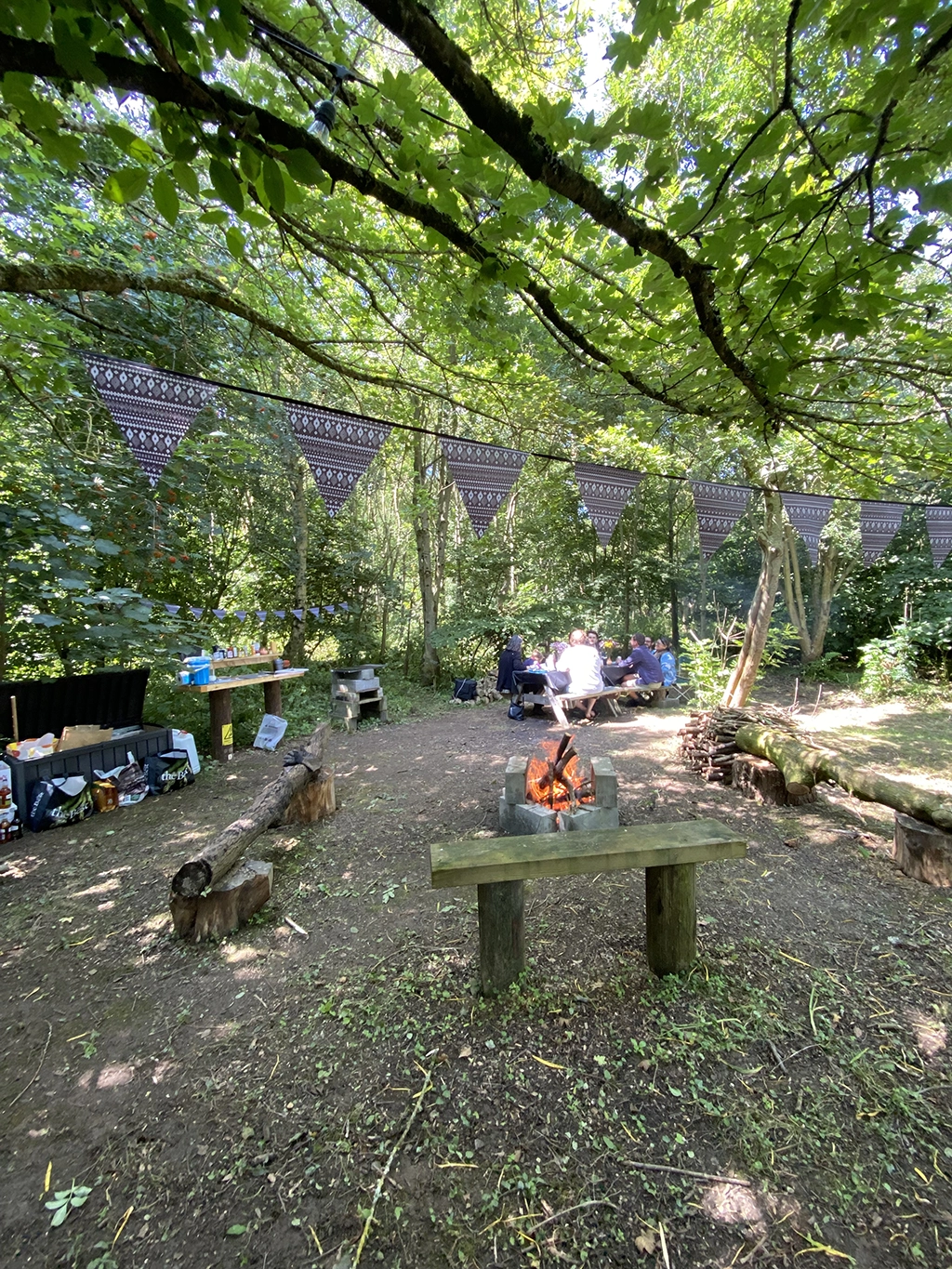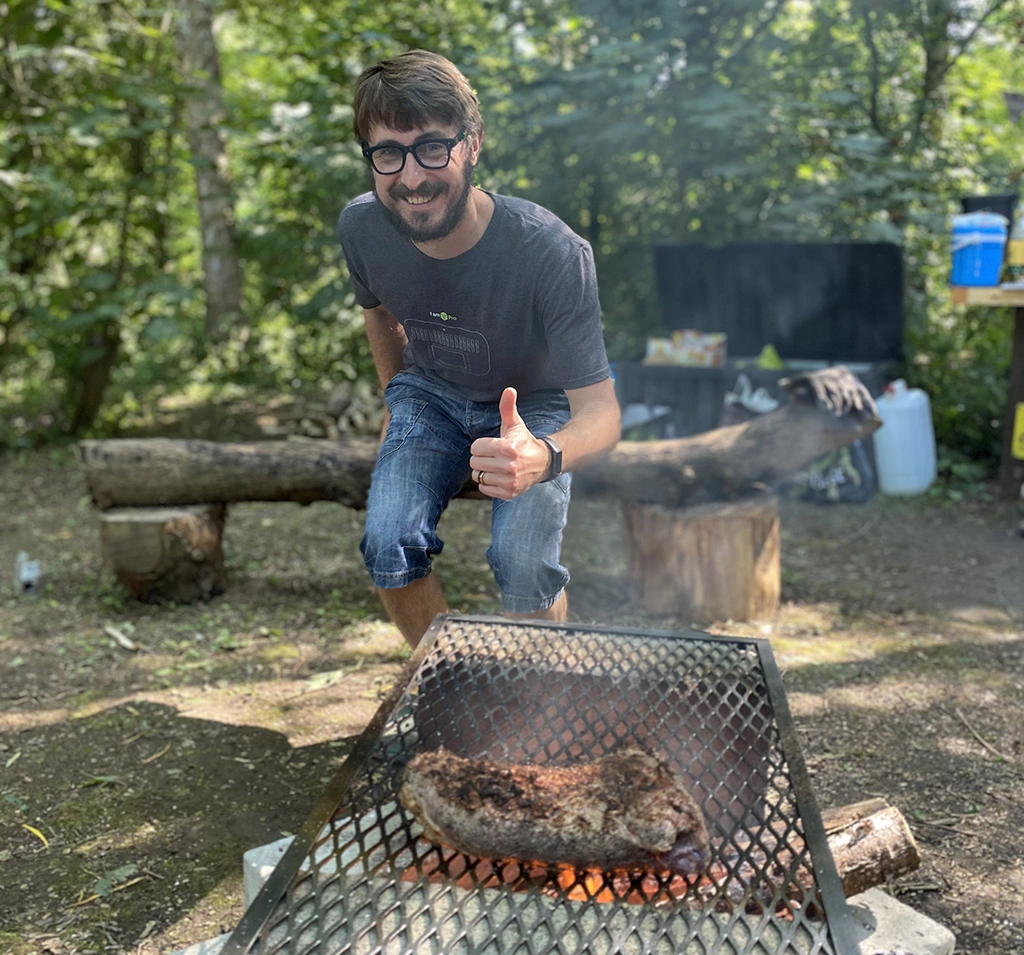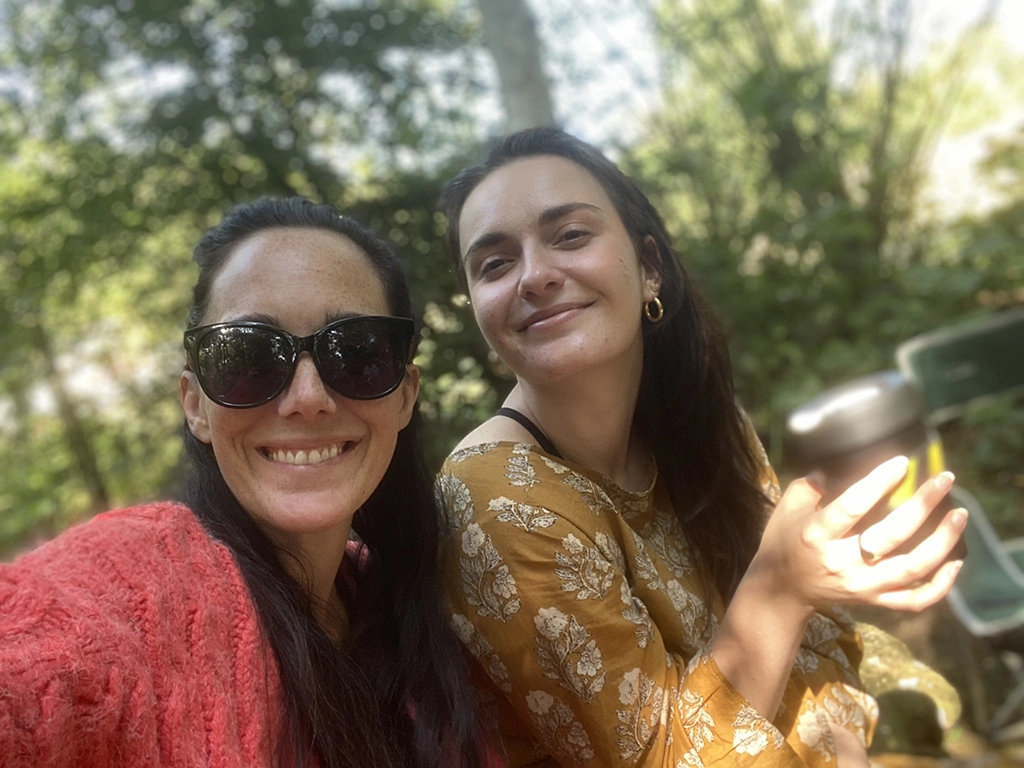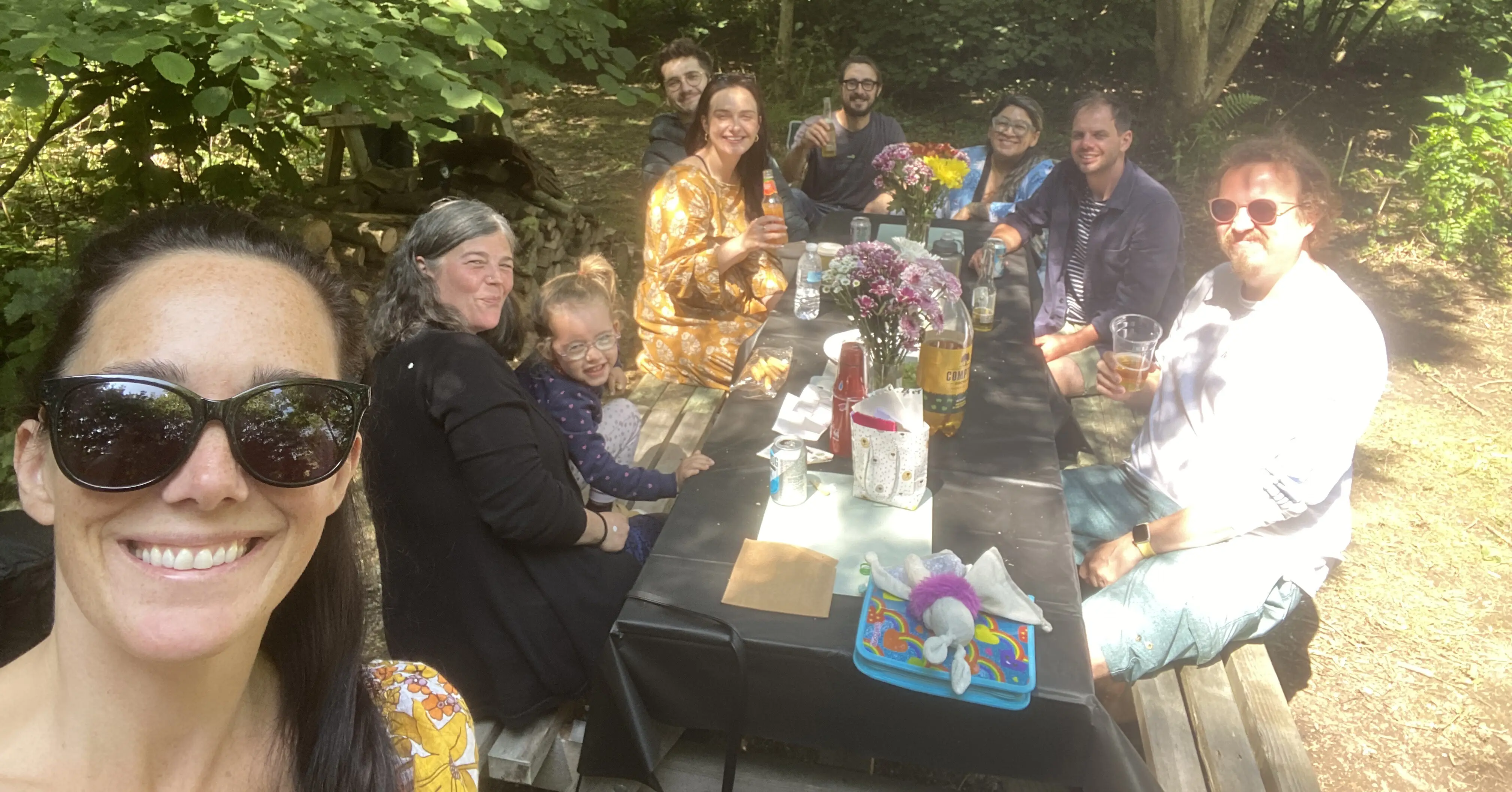Balena is a fully remote company. We’re remote first (since long before the events of 2020), but still acknowledge how important it is to see and hug each other in real life as much as we can.
This July, we held our second annual Cornwall (UK) mini-meet (you won’t find a blog post for the first one – let’s call it a pre-experimental, undocumented, proof of concept). Separate from how we usually get the whole team together in one place for our annual balena summit, which means figuring out how to get a lot of people together in one place at the same time, our mini-meets are an experiment to find out how this can work in a more self-serve, ad-hoc manner. The idea is to enable more in-person interaction between our team members at a higher frequency than just once per year.
Here, we’re sharing what we learned in the hope it inspires more people to give it a go – not only on our team but on yours too!
The idea
As I mentioned, we do hold annual summits which involve a lot of work on the part of our operations team, a lot of international travel, and a lot of financial outlay – just the amount of travel required to bring the team together brings a substantial cost to the event. Due to the fact we’re also trying to find a week that the whole team has free, there are limited times where it’s actually possible, and usually we end up optimizing for as much of the team as we can as opposed to the whole team, which unfortunately means some people miss out, and have to go another whole year without seeing their teammates.

If we take annual summits to be at one end of a spectrum, fully organized by our team, fully funded by the company and are ‘official’ and supported, our idea for the mini-meets is that they are at the complete opposite end of the spectrum. There are no explicit organizers, they are very much unofficial, and are up to the attendees to self-serve and figure everything out. We haven’t yet figured out the funding part, but are thinking how best to go about it.
The group attending the meet self-organize and come together to make the event what they want it to be. The group can define what success looks like for their event, where they’re going, and what they’re doing. The attendees work together to handle everything necessary so that the hard work of creating a successful event is not carried out by one individual or group every time.
The idea behind mini-meets is to enable anyone to start and hold an event, meaning that as a team we end up with more events and more chances for people to get that valuable in-person time without adding undue stress or single points of failure. Hooray for that!
I’m going to take you through the thought process that we went through as we put together our mini-meet. Let it serve as an example and give you ideas of things to consider rather than an explicit step by step guide. There are lots of variables and the point is to give it a try and see what works rather than to follow a specific formula.
Let’s do this! Where do I start?
Start by getting a group together who can attend the event and will work together to make it happen – you need a critical mass that is committed to ensuring the event goes ahead so that if anyone has to drop out due to unforeseen circumstances, there are still enough people to make it work. This most likely involves first agreeing on the date and location and going through the checklist below:
- Setting a date and location
- Sharing and inviting
- Travel
- Accommodation
- Food and Drinks
- Basic needs
- Budgets and finances
- Less importantly
- Run your own event
Setting a date and location

Considerations:
- Core group availability
- Transportation availability (e.g. flights/trains/buses/parking)
- Indoor or outdoor
- Time of year (weather)
- Venue
- Utilities – water/power/bathrooms/internet access.
Given this was our second (now annual) Cornwall mini-meet we already had a rough idea of what might work. That and that we needed business hammocks this time around. The first task was to set a date, and we wanted to choose one that was at least initially optimized for allowing the group that attended the first time to attend again. This group knew the location and understood the concept, and so we thought it would be good to build on that. Therefore, the date was chosen based on availability of our core group.
If you’re planning an outdoor event, obviously time of year could play a big part depending on your location – we lucked out and happened to choose the one sunny and dry day amongst weeks of rain!

The venue in our case was a small woodland and grassy area that we can use for free – it just needs to be prepared and set up for the event. This dictated the location, as it was more about utilizing the venue we had rather than choosing a specific place that’s easy to get to, since we know it allows for cooking things with fire (a hard requirement of a Cornwall mini-meet). Some other options could be to first choose a location, then to look at venues such as co-working spaces, parks, event spaces, all depending on how many people you expect and where you’re meeting up. It’s also nice to decorate the space a bit if you’re able – even simple things like bunting and flowers can add a lot.
Sharing and inviting

Considerations:
- Make sure the meet is communicated to everyone on more than one occasion
- Make an open invitation to all and encourage everyone to attend if they can
In order to get an idea of how many to expect, share the date and expected location with the entire team. Mini-meets should be open to the entire team to attend. Even though it may not be practical to do so for the majority of people, who knows what travel plans will align and permit someone who doesn’t normally get a chance to meet anyone to attend and get that in-person interaction. Being open, transparent and inclusive is key. With our Cornwall mini-meet we hope to keep expanding year on year to be able to accommodate and give more of the team a chance to attend.
Travel
Considerations:
- Optimize for availability and ease of travel (flights/trains/buses/parking)
- Provide details of nearby stations/airports/bus stops/parking to help people figure out their travel plans
Travel is a consideration that is of course closely linked to other factors such as date and location. Sometimes the location may be predetermined, as in our case where we had a cost-free outdoor space we could use, in which case you may have little influence over availability of transportation options. However, choosing a date that aligns with availability of public transportation options may enable more of the team to attend. It’s common for regional airports to only have flights to some locations on certain days of the week, for example. Arranging travel is one of the biggest challenges and largest amounts of work when it comes to the annual, whole-team, official summit, so for mini-meets we encourage everyone to make their own arrangements individually and do what works best for them.
Accommodation
Considerations:
- Provide options for your attendees to stay nearby or at the location either the night before or after. This could mean providing space for camping, or providing links to nearby hotels/AirBNBs.
- Work to make it easy for someone who isn’t from the area to be able to come and stay!
Like travel, accommodation is one of the biggest considerations when we plan our whole-team summit, but, again like travel, for mini-meets we encourage everyone to make their own arrangements to save one or a few people from having to take on responsibility for everyone. As a group you can work to provide some links to options for nearby accommodation as well as camping if appropriate, but the idea is that it should be self-serve for the most part. We find this works well as everyone has different needs and comfort levels – some people are happy washing in a river and sleeping on the floor outside, some of us need a few more walls and maybe a roof!
Food and Drinks

Considerations:
- Food safety if cooking
- Options for delivery/dining out
- Enable collaboration
Food and drinks are one of the easier things to handle, but still requires a bit of coordination. Consider enabling people to bring and/or cook something to share with the group. Make considerations for those with specific dietary requirements, and pay attention to basic food safety and hygiene. Consider the use of anti-bacterial wipes/sprays and keep your food preparation areas clean. Cook things together – this is, in my opinion, one of the most fun things to do together as a group.
For the Cornwall mini-meet, cooking with fire is one of the major themes (that and brown drinks). We had a campfire and prepared a good supply of wood with a grate to go over it and cook on. We had a griddle, and a means to boil water too. We also had a wood fired oven so people could make and cook pizzas – which turned out to be delicious.

Maybe cooking isn’t your thing, and that’s OK, in which case it might be a good idea to look into options before the day. Can you get food delivered? Will you go out to eat as a group? Either way, avoid hanger!
Basic needs
Considerations:
- Bathrooms
- First aid
If you’re using a co-working space or something like a conference room or event space, the chances are this will be taken care of on your behalf, but it still doesn’t hurt to ensure you have a first aid kit around. Who knows when you might need it. If your event is in an outdoor woodland area like ours is, you may need to provide bathrooms which can be rented from a local supplier and delivered to site.
Budgets and finances
Considerations:
- Enable everyone to contribute; think about how each attendee can contribute something to the event so that everything comes together to form the whole
- Balena should try to support the event where possible by helping with costs for things the group can share and will benefit from
Of course, these events don’t happen completely for free, but the idea is that everyone pitches in and comes together to make it a success. However, at balena, given the idea is to enable as much of the team as possible to hold their own event, we want to figure out how we can help with finances where necessary. The ultimate goal to work towards would be to enable people to spend whatever they need to in order to hold their event, but whilst we develop the concept and idea, we’ll work on the basis of having the company assist with costs that benefit the event as a whole as and when we can. For example, for the Cornwall event, balena covered the bathroom facilities and a battery power bank – a bit of woodland and grass is somewhat lacking in utilities so this allowed us to have lights, music, and charge our electronics, as well as to not to have to walk large distances to the nearest bathrooms. Everything else was contributed by those attending.
Less importantly
In the past, I’ve been overly concerned with providing internet access. As it turns out, if you’re all hanging out in person, this isn’t the most important thing. If you’re part of a remote team, you likely spend a decent chunk of your time on video calls/Zoom/meets. Take the opportunity of being in person for once to get away from the screen and interact face to face. Of course, it depends what you want to do, but my advice is to spend it doing something together that you can’t normally do virtually.
Run your own event
With all that said, it’s best just to get started without thinking about it too much initially. Get a group together that are at least somewhat geographically close to each other and start from there. Agree on a date and location and gradually bring things together. It doesn’t have to be stressful, and can be put together gradually. The events should be a bit of fun and can be low pressure – if you forget something the group comes together to figure it out on the day, no big deal. Plan and attend with no expectations and see how it goes.

We hope that the trial runs we’re doing in Cornwall inspire you and others on our team to try organizing and hosting their own mini events in their own parts of the world. In-person, real-life, hanging out with our co-workers is so important and as a company we will continue to work on how we can complement our asynchronous, remote-work heart with that key requirement. We’ll continue to share why, what and how we’re doing this in the hope that it helps other remote teams in the same position, and we’ll be updating our team handbook to share some more specifics about how to run your own mini-meet.
Share with us
Let us know down in the comments if you’ve organized your own mini-meet – what went well, what no so well. If you have any thoughts about our mini-meet concept let us know too – what do you agree with, what don’t you agree with, what could we improve? Talk to us either way. Cheers ‘n’ gone!

